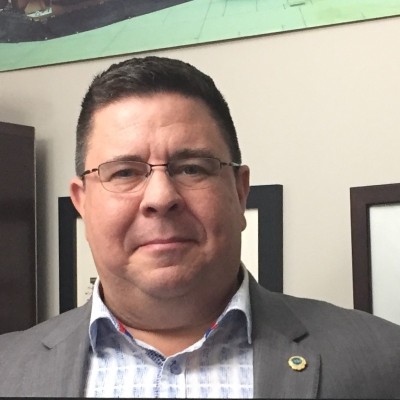
Meet Pascal Rodier, a 30-year public safety and emergency management veteran. After retiring from progressive leadership roles in emergency medical services, he transitioned into the emergency management (EM) field fulltime.
Rodier specializes in responder and emergency management interoperability, with an extensive resume backing it up. He advocates for national governance, standards and competencies to elevate the emergency management profession in Canada.
Rodier sits on the Avert editorial advisory board – an assembled team of practitioners from coast to coast lending their experience and networks to help steer editorial content.
Read his take on challenges and opportunities facing disaster management in Canada in the Q&A below.
Avert: What is your current and what are your past roles as they relate to the field of disaster and emergency management?
Rodier: I’m the provincial director of emergency preparedness for a provincial health authority, responsible for setting the direction for emergency preparedness across the organization, and leading the development and implementation of strategic plans, goals and objectives to support the delivery of provincially integrated systems for prevention and mitigation of, preparing for, responding to, and recovering from unexpected/unplanned incidents and planned events. I do this with an amazing team of emergency preparedness mangers, advisors, and administrative assistants across the province.
My past EM roles include manager of projects and planning, emergency preparedness for a health authority, and director of the emergency measures organization (EMO) for the Town of Quispamsis in New Brunswick.
I’m a member of the International Association of Emergency Managers (IAEM), a certified emergency manager (CEM), and president of the IAEM-Canada Atlantic Region. I’m also a member of the IAEM-Canada Council Partnership Engagement Committee and the IAEM-USA Mental Health and Wellness Caucus, and serve as an approved AEM/CEM mentor.
Other designations include being a situation awareness specialist (SAS) with the Arcuri Group, professional continuity practitioner (PCP) with FEMA, and Incident Command System (ICS) lead instructor.
Avert: How long have you been involved disasters or related fields and what are some career highlights thus far?
Rodier: I have over 30 years in public safety and emergency management, with extensive experiences in leading teams on large-scale incidents. That includes command roles in many incidents including airplane crashes, multi-casualty incidents, fire, Hazmat, CBRNE and civil unrest incidents. I’ve also held command positions for large scale civic events, including the 2010 Winter Olympics and Paralympics. Throughout my career emergency management played a role and crossed over into regular operations.
My expertise lies in responder interoperability – face-to-face, voice and data. I’m one of the founding associates of the Canadian Interoperability Technology Interest Group (CITIG) and have co-authored the Communications Interoperability Strategy for Canada as well as the Communications Interoperability Action Plan. I am also one of the original co-chairs of the Tri-Services Chiefs Special Purpose Committee 700 MHz Broadband Project.
In 2017, I was the director of EMO in Quispamsis, N.B., and oversaw the response to the 2018 Freshet Floods. Since 2018, I have been involved with emergency preparedness within healthcare, and 2019 onward, I’ve focused on COVID-19 healthcare planning and response.
Avert: What do you see as the biggest challenge facing emergency managers and the disaster management system in Canada?
Rodier: I believe that emergency management in Canada has come a long way, but I also believe that we still have a long way to go as we continue to mature as a recognized profession. We do not have national consistency of how we do things, like naming, incident management processes, education, or standards.
By design, local to federal, is fine when it comes to the escalating asks during an emergency or disaster. However, a top-down approach nationally would better set us up for success in the other phases of EM. Developing national governance, standards and competencies would elevate the important profession in Canada.
Many Canadians involved in EM are forced to spend a lot of money on education. Or they can turn to our American partners for a plethora of free education as DHS, through FEMA, has developed an amazing education process (both virtually or in-person). However, the FEMA courses, while informative, are based on U.S. laws and processes. We have nothing like that left in Canada (we once did with our National Canadian Emergency Preparedness College, but it was shut down after decades of service) other than the odd provincial courses offered by regional EMO.
Avert: Similarly, what do you see as the biggest opportunity?
Rodier: Our biggest opportunity is our people serving in EM! We have many amazing champions and experts in the field, many working EM off of the side of their desks, that are working hard to elevate EM across the country.
We have a closely connected group of practitioners, due to our population size, that often share and learn together.
We have some provincial EM associations as well as a Canadian Council for the International Association of Emergency Managers (IAEM), which are all working hard to improve process and standards across the country; we simply need to break down some of the “Pillars of Excellence” and align the collective priorities.
We now have a federal minister who has emergency preparedness as a stand-alone portfolio. This sets Canada up well for a true champion, federally, to establish many of the similar regulations, laws and standards as we see with our American counterparts.
Print this page
